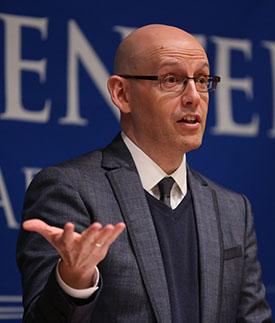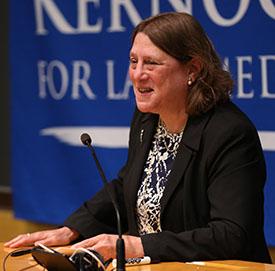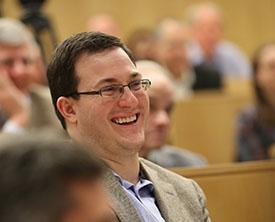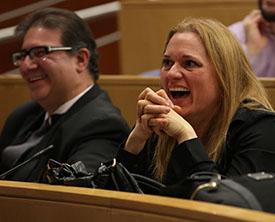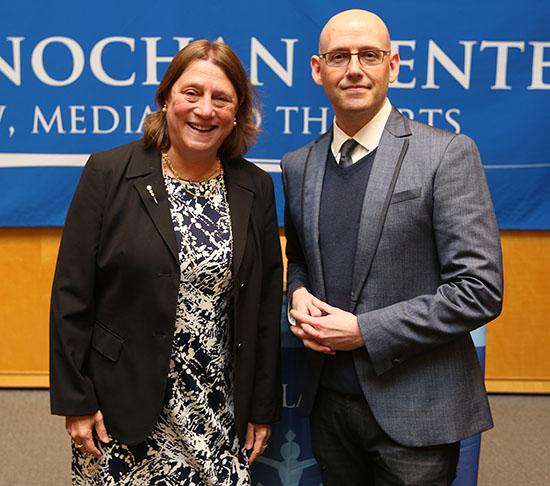A Writer Shaped by Columbia Law School
New York, April 8, 2016—Novelist Brad Meltzer ’96 paid tribute to the professors, classmates, and fundamental lessons he learned when he was a student at the Law School during a humorous and insightful talk titled “Copy Write: The Author Survival Guide.” On March 24, Meltzer delivered the 29th annual Horace S. Manges Lecture, sponsored by Columbia Law School's Kernochan Center for Law, Media, and the Arts.
Novelist Brad Meltzer ’96 speaks about how his Columbia Law School experience has influenced his writing career. |
| Professor Jane Ginsburg, Kernochan Center faculty director, introduces Brad Meltzer and explains the history of the Manges Lecture. |
He sought out one of the Law School’s top experts, Professor Jane Ginsburg, now the Morton L. Janklow Professor of Literary and Artistic Property Law, and asked about obtaining copyright protection for the novel he wrote in Boston: “It was like asking the head of the Treasury Department for help with your 1099.” She gave Meltzer a more practical lesson in how to sell a book. First, she said, he needed to send out copies of his manuscript in order to find an agent. She referred him to Janklow, who turned him down but offered the names of other agents. Meltzer had no money to make more copies of his 500-page manuscript, but then the dean of students, Marcia Sells ’84, made the copies for him. He found an agent, though that first book would never find a publisher.
| Students enjoy Meltzer's humorous anecdotes | peppered throughout his March 24 talk. |
| Brad Meltzer '96, with Professor Jane Ginsburg, said he appreciated the pointers she gave him on how to sell a book when he was a student at Columbia Law School. |
